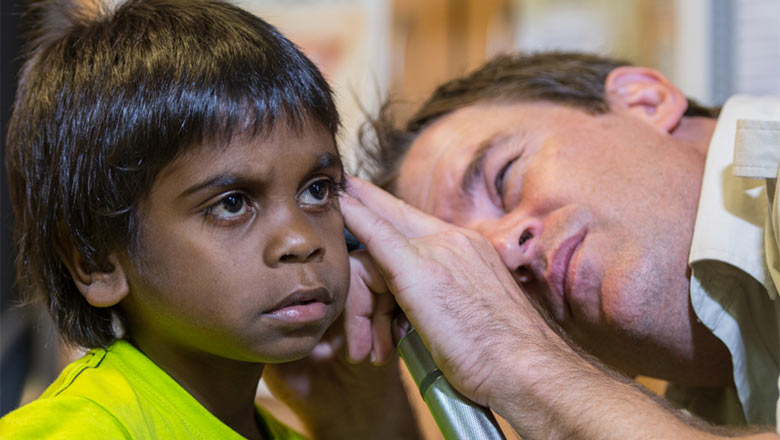Search
Showing results for "Au"

News & Events
National FASD diagnostic tool to improve outcomes for kidsAustralia's first national diagnostic tool for Fetal Alcohol Spectrum Disorder (FASD) has been developed by researchers at The Kids Research Institute Australia and the U
Research
High prevalence of hearing loss in urban Aboriginal infants: the Djaalinj Waakinj cohort studyChris Deborah Tamara Brennan-Jones Lehmann Veselinovic PhD AO, MBBS, MSc BSc(Hons) MClinAud PhD Head, Ear and Hearing Health Honorary Emeritus Fellow
Research
Improving clinical trial readiness to accelerate development of new therapeutics for Rett syndromeRett syndrome is associated with severe functional impairments and many comorbidities, each in urgent need of treatments. Mutations in the MECP2 gene were identified as causing Rett syndrome in 1999. Over the past 20 years there has been an abundance of preclinical research with some studies leading to human clinical trials.
Research
Influenza hospitalizations in Australian children 2010–2019: The impact of medical comorbidities on outcomes, vaccine coverage, and effectivenessChildren with comorbidities are at greater risk of severe influenza outcomes compared with healthy children. In Australia, influenza vaccination was funded for those with comorbidities from 2010 and all children aged <5 years from 2018. Influenza vaccine coverage remains inadequate in children with and without comorbidities.
Research
Prevalence of breakfast skipping among children and adolescents: a cross-sectional population level studyInterventions to promote breakfast consumption are a popular strategy to address early life inequalities. It is important to understand the epidemiology of children and adolescents who skip breakfast so that interventions and policy can be appropriately considered.
Research
Perceptions of a family-based lifestyle intervention for children with overweight and obesity: a qualitative study on sustainability, self-regulation, and program optimizationFamily-based lifestyle interventions (FBLIs) are an important method for treating childhood weight problems. Despite being recognized as an effective intervention method, the optimal structure of these interventions for children’s overweight and obesity has yet to be determined.
Research
Determinants of quality of life in Rett syndrome: New findings on associations with genotypeRett syndrome is a genetically caused neurodevelopmental disorder associated with functional deficits and comorbidities. This study investigated relationships between genotype, functional abilities and comorbidities and quality of life in Rett syndrome.
Research
Can telehealth increase physical activity in individuals with Rett syndrome? A multicentre randomized controlled trialTo evaluate the effects of a physical activity programme on sedentary behaviour and physical activity in ambulant individuals with Rett syndrome.
Research
Reversible Control by Vitamin D of Granulocytes and Bacteria in the Lungs of Mice: An Ovalbumin-Induced Model of Allergic Airway DiseaseVitamin D may be essential for restricting the development and severity of allergic diseases and asthma, but a direct causal link between vitamin D...
Research
Exposure to UV Wavelengths in Sunlight Suppresses Immunity. To What Extent is UV-induced Vitamin D3 the Mediator Responsible?In experimental models, both vitamin D3-dependent and vitamin D3-independent pathways have been implicated in the mechanisms of UVR-induced systemic...
